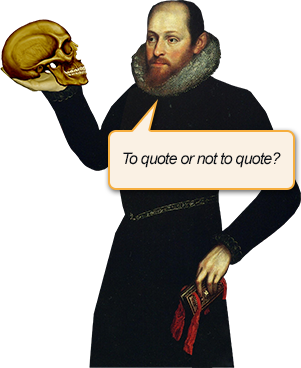The Second Treatise on Civil Government Quotes
Shmoop will make you a better lover...of quotes
ALL QUOTES POPULAR BROWSE BY AUTHOR BROWSE BY SOURCE BROWSE BY TOPIC BROWSE BY SUBJECTSource: The Second Treatise on Civil Government
Author: John Locke
"The state of nature has a law of nature to govern it."
The state of nature has a law of nature to govern it, which […] teaches all mankind, who will but consult it, that being all equal and independent, no one ought to harm another in his life, health, liberty, or possessions.
Context
This line was written by the philosopher John Locke in his Second Treatise on Civil Government, published in 1689.
In his Second Treatise, John Locke goes ape on the idea of monarchy and divine rule that was all the rage in European politics for hundreds of years. Or, to put it more simply: he couldn't stand the idea that a king or queen was God's direct representative. So he went ahead and wrote that human government should be based only on human nature and not some bearded man up in the clouds.
When it comes to politics, Locke thinks we should just look to the laws of nature, which apparently tell us to respect everyone's rights as individuals. He obviously never watched nature documentaries.
Where you've heard it
This quote doesn't really appear in any famous movies or books, but chances are you've heard someone saying a similar thing when they're trying to win a go-nowhere argument. Just think of the last time you got into an argument about politics with someone and that person said, "Yeah, well that's not natural. We should do what's natural." Hmm, so maybe this person is saying that we shouldn't drive cars or use toilets either…
Pretentious Factor
If you were to drop this quote at a dinner party, would you get an in-unison "awww" or would everyone roll their eyes and never invite you back? Here it is, on a scale of 1-10.

Kudos if you can actually recite the entire quote word for word, but just know that, if you do, people's amazement might quickly turn to annoyance. First off, Locke's language is super-fancy for everyday conversation. Second, you'd better be prepared to explain the quote in simpler language if someone gives you a cockeyed look.
